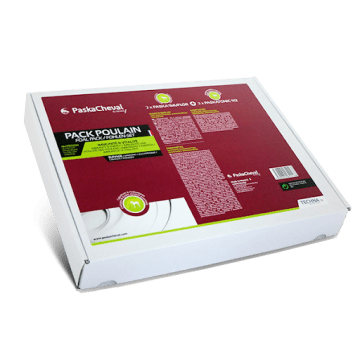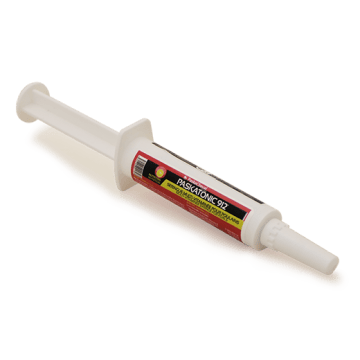Mares also need to be monitored to detect any complications. It is very important to ensure mares have a balanced diet at the start of lactation. Milk production leads to changes in a mare’s energy, protein, vitamin, mineral and trace element requirements. The risks related to a poorly balanced diet include inadequate milk production, osteoporosis, reduced immunity, etc.
Just like the foal, it is useful to observe the mare. Her teats may develop mastitis, for example, which could stop enough milk being produced for the foal. Total delivery of the placenta (passing of the entire placenta) must be achieved within 3 hours after foaling. Otherwise, metritis problems may develop. These are synonymous with incorrect involution of the uterus and may be complicated by endotoxaemia, septicaemia and laminitis.
[1] Colostrum: this is the mare's first milk. This milky secretion contains a very high quantity of immunoglobulins (IG).
[2] Immunoglobulins: these are an integral component of the immune system. They help control pathogens to prevent the development of diseases.
[3] A foal’s first faeces.
Successful foaling and the first days of a new foal’s life are events that require careful preparation. Bedding conditioners and feed supplements must be adapted to take into account the main problems affecting broodmares and foals during this period. Find all the products in the Paskacheval range at your nearest distributor.







